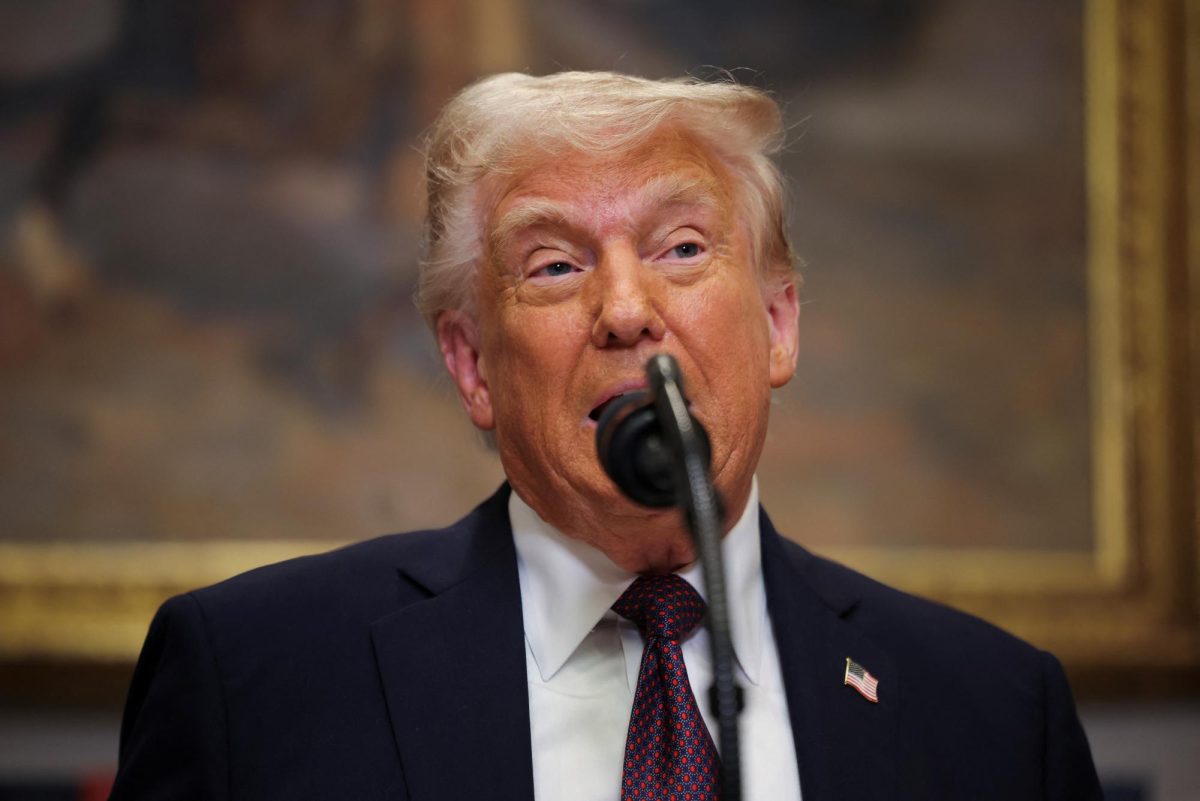Us Aggies live privileged existences: companies beg us to take on tens of thousands in loans.
I know this may sound contradictory, but the harsh reality is that countless hardworking individuals across the world, such as impoverished Nigerian farmers, can’t even get a bank to take them.
But it doesn’t have to be this way: Cryptocurrencies like Bitcoin and Ethereum offer a solution.
Unlike traditional banks, they operate on a decentralized model using a blockchain. This allows for unprecedented access to financial services, even in areas with limited connections. For many Nigerians, this looks something like going to a local electronics store, buying the trendy Tecno T301 cell phone for 16,400 Naira ($14.12), and getting an internet connection — you can now access a bank.
Even with all its convenient perks, blockchain is mainly about security. It’s a technology made to protect people in an unfriendly world. Cryptocurrencies are used every day by vulnerable groups: activists, fighters, refugees — people that other people don’t want to be served.
Crypto’s enduring existence makes it the bane of authoritative regimes like China, Iran and Russia. Many countries, including Russia, have laws that ban people from donating to “extremist” groups. One such “extremist,” Alexei Navalny, only took donations in the form of crypto to protect himself and his supporters. Traditional financial systems would have been easy for the Kremlin to manipulate, but crypto allowed him to bypass such controls. This underscores a trend: Tools like crypto designed to democratize wealth are the ones that most unsettle authorities.
Centuries of centralized finance infrastructure have established safeguards and regulations. While these can be cumbersome, like Know Your Customer rules, they play a vital role in preventing financial crimes. However, this control comes at a cost. Just as governments might use their authority to censor opposition, centralized systems can restrict individual liberties. Finding the right balance requires striking a chord between the security and efficiency of centralized systems and the innovation and accessibility of crypto.
With the general rise in nationalism, the disappearance of crypto seems unlikely. Once crypto threatens the dollar as the choice reserve currency, no single country has the control to stop it. Countries would be bound in a prisoner dilemma — to control the crypto industry, nation-states have to work together. Without cooperation, countries that prohibit crypto risk losing out economically.
Stable currencies like crypto are the bedrock of any economy, and while cryptocurrencies are currently known for their volatility, once we see wider adoption by countries, prices will stabilize. Currency is more than just printed paper — It can be a vehicle for social mobility, enabling individuals to participate in the economy and build a better future. For regions like Latin America, it incentivizes wealthy countries to invest in the same crypto infrastructure, keeping economically disadvantaged countries at the forefront of technology. In the meantime, countries without crypto are certain to see governments manipulating currency.
And that’s the problem. A world with a single arbiter of wealth is as brittle as the institution it depends upon. While the centralized world functions OK today, it stands on a house of cards. As time goes on, there are bound to be bad actors that ruthlessly abuse the current centralization of power.
Decentralized finance isn’t just about efficiency; it’s a safeguard against future abuses, ensuring that power lies with the will of the people, not the institutions meant to serve them.
Eddie Phillips is an engineering senior and an opinion writer for The Battalion.
















